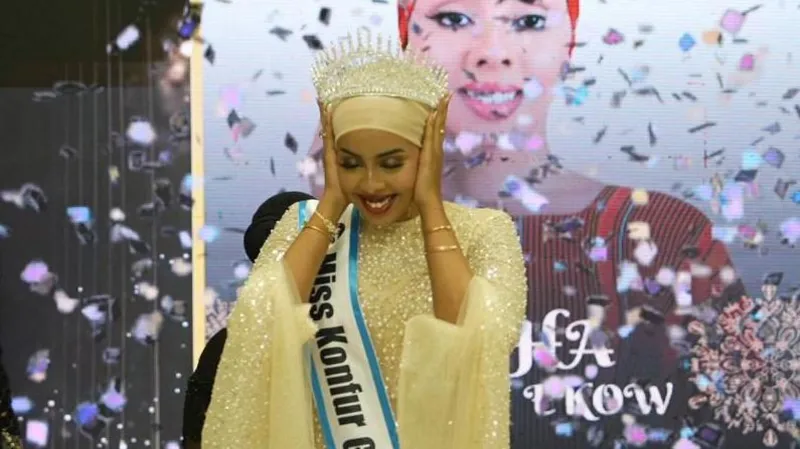Inclusive Evolution of Japan’s Ancient Ritual: Women Join Historic “Naked Festival”

In a significant departure from tradition, women have made history by participating in Japan’s renowned “naked festival” for the first time in its 1,250-year legacy. Contrary to the event’s suggestive name, participants adorned purple robes and embraced the ritual’s spiritual significance, aiming to dispel malevolent forces and invoke blessings of joy and prosperity.
Inaugural Female Participation: Breaking barriers, seven groups of women engaged fervently in the ancient ceremony, symbolically carrying bamboo trunks as offerings while adorned in traditional attire. Although the festival retains its distinctive title, participants, regardless of gender, were clad in “Happi Coats” and shorts, aligning with customary festival attire, while men sported loincloths reminiscent of sumo wrestlers.
Participant Perspectives: Emi Tachibana, a 59-year-old civil servant, expressed her enthusiasm for participating, emphasizing the desire to infuse vitality into the event and the local community. Her sentiments echo the growing inclusivity within Japanese traditions, fostering a sense of unity and celebration among diverse participants.
Priest’s Perspective: Naruhito Tsunoda, a shrine priest, highlighted the festival’s inclusive ethos, affirming that women’s participation had never been explicitly prohibited. Welcoming the initiative by a women’s group to join the festivities, Tsunoda emphasized the paramount importance of creating an enjoyable and inclusive atmosphere for all attendees, aligning with the festival’s essence of communal joy and spiritual reverence.
Limitations and Gender Parity: While women were embraced in certain aspects of the festival, logistical challenges precluded their involvement in the main event, characterized by physical clashes among men to ward off malevolent spirits. Tsunoda acknowledged the limitations but underscored the ongoing efforts to promote gender inclusivity in Japanese society, resonating with broader initiatives to address gender disparities highlighted in recent reports.
Gender Parity and Societal Progress: Japan’s commitment to enhancing women’s participation resonates with broader societal aspirations for gender parity, as underscored by governmental initiatives aimed at narrowing the gender gap. The World Economic Forum’s report on gender parity underscores the urgency for inclusive reforms, positioning Japan’s endeavors within a global context of advancing equality and inclusivity.
The historic inclusion of women in Japan’s venerable “naked festival” marks a pivotal moment in its millennia-old tradition, reflecting evolving societal norms and aspirations for gender equality. As Japan endeavors to foster greater inclusivity and parity, such milestones serve as beacons of progress, symbolizing a harmonious blend of tradition and modernity in the quest for a more equitable society.
Re-reported from the article originally published in The NDTV News








